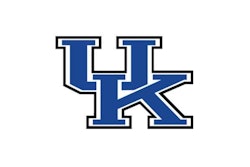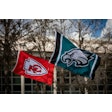Copyright 2018 Independent Publishing Company
All Rights Reserved
Anderson Independent-Mail (South Carolina)
CLEMSON — When the Clemson football team kicks off yet another promising season on Saturday, the players may do plenty of talking on the field.
And who could blame them?
They won't be expressing themselves on social media.
Despite ever-growing social media platforms and participation, particularly among millennials, Clemson's players appear to be bucking the trend.
The 2018 season will mark the seventh consecutive year that the players have adopted a team-wide, season-long ban on posting on Twitter, Facebook and Instagram.
"We don't have time to be on social media, to be honest," said senior defensive end Austin Bryant. "So it's no big deal."
Despite overwhelming support for the ban on behalf of Clemson's players, the Tigers remain the only Atlantic Coast Conference team to institute a player-driven, team-wide policy, although N.C. State has had position groups that have elected to pass on social media during the season.
Each of the remaining 12 league schools were surveyed as well, and none have restrictions on social media participation, although most said they have individuals who choose to eschew the platforms once the season is under way.
"I know some guys do stay off social during the season," said Pete Moris, Virginia Tech's associate athletic director for strategic communications. "But there is no team or self-imposed ban."
Offered Jason Baum, associate athletic director for communications at Boston College: "We encourage our guys to use the platform — we just educate them on how to do it the right way."
No way apparently has become the right way for the Tigers, who don't appear to have suffered any social media withdrawal during the previous six seasons.
Talent has elevated Clemson to its lofty national standing, but both players and coaches are quick to remind that the Tigers are 72-11 since adopting the commentary on social media ban.
Coincidence? Probably.
Selling point? You bet.
"I think that just tells you about the collective focus that that program has," said ESPN college football analyst Kirk Herbstreit. "And the older players, they clearly are not letting success or individual notoriety go to their heads."
Senior cornerback Mark Fields confirmed that such is the case.
"It's a good thing," he said. "It keeps the team locked in and focused on the task at hand. It keeps everybody away from all the outside stuff, all the haters.
"Really, what we've got here is most important. Whatever everybody's talking about out there isn't important at all."
There's no question that it seems to be a bigger deal to outsiders than to the players themselves.
Some national sports media representatives have questioned the practice, contending that it denies players the right to express themselves.
Bryant scoffs at the notion.
"We're grown men, so I guess people feel like we should have the freedom to do what we want to do," Bryant said. "But we're such a close-knit team. It is team-imposed and really like it because during the season you'll see so much criticism for you and your performance if you play bad.
"Just knowing the whole team's not on social media, you don't feel the responsibility to stick up for yourself and say something back. Besides, we still look at it (social media), we just don't comment. It's not like we're in a hole or anything."
The origins of the player-imposed ban can be traced back to the summer of 2012, when a tweet by then-quarterback Tajh Boyd about the arrest of then-South Carolina quarterbacks coach G.A. Mangus prompted a firestorm of feedback.
When fall practice began a short time later, Boyd told center Dalton Freeman that he didn't have time to deal with all the fallout from his tweet.
Freeman came up with the idea of going inactive on social media during the season and he and Boyd approached Swinney with the idea. The team unanimously approved and each team since has followed suit.
"I'm a fan of it," said Eric Mac Lain, who was a redshirt freshman tight end on the team when the policy was adopted. "I think it has kept us out of a lot of drama-filled situations that you see in other places."
Mac Lain doesn't expect the tradition to anytime soon.
"It's something the guys are used to now," Mac Lain said. "It's not some big secret. Nobody's like, 'Oh my, I'm transferring.' We have enough grown men to understand that this is only going to help."
Herbstreit, a former quarterback at Ohio State, couldn't agree more, saying that he's a big fan of Clemson's players "self-policing" themselves.
"I love that," he said. "I have four boys. I have two that are in high school, two seniors that play, and a sophomore as well. I'm constantly talking to them about focusing on what matters most to them, especially during those months.
"It's cool to hear that the players are setting that tone. Players are saying, 'Hey, we want all distractions out of our way. We want to focus on winning football games.' "
Read More of Today's AB Headlines
Subscribe to Our Daily E-Newsletter
Terms and Conditions Privacy Policy



































